In this article, we’re talking about the difference between collagen peptides and gelatin, how it’s sourced, how it’s different from a traditional protein powder, the health benefits of collagen, and some ideas for incorporating the powerhouse supplement into your daily life.
Today we’re partnering with Vital Proteins to talk about all things collagen! If you’ve been curious about collagen and whether or not you should incorporate this amazing supplement into your daily routine, read on!
What is collagen?
Just to make sure we’re all on the same page, let’s set the stage a bit. In the human body, there are 20 amino acids. Amino acids can be thought of as simple building blocks that are used to construct proteins. The number of different proteins our 20 amino acids can make is EXTENSIVE, but today we’re talking about just one: collagen. Collagen is the most abundant protein in our body, rolling in at around 30% of our total protein makeup. Collagen is found in our ligaments, bones, teeth, skin, hair, cartilage, muscle tissue, and beyond! It can be thought of as the frame that holds up and provides the structure for an overnight camping tent. That frame can be firm or elastic, but those fibrils provide a great deal of structure for our tissues.
Collagen and the Aging Process
The process of aging can be summed up by two main principles: our bodies become less efficient at rebuilding tissues while also becoming less efficient at assimilating nutrients needed to rebuild those tissues. This is why supporting a healthy gut and then providing it with an abundance of healthy nutrients is so important to maintaining consistent health throughout the years. Our body is in a constant state of losing and then rebuilding body tissue, and collagen is one of these. As we lose collagen in our skin, joints, nail beds, digestive system, etc, our body has to work to rebuild as best it can. Unfortunately, amino acid reserves for rebuilding these tissues naturally diminish over time. THIS is why dietary supplementation with responsibly-sourced collagen can make such a big difference.
What are the health benefits of collagen?
The food and supplements we take in don’t directly turn into our own tissue. For example, when we take a bite of steak, that steak doesn’t automatically convert into more bicep on our own frame, but we know that protein is an important precursor to building muscle. Similarly, ingesting collagen (be it peptides or gelatin) doesn’t automatically turn into healthy connective tissue of our own. What DOES turn into healthy body tissue is what we’re able to assimilate from it. Taking in the concentrated amino acids found in collagen (especially glycine, proline, and hydroxyproline) gives your body the TOOLS to boost collagen production and build healthy connective tissues. Consuming collagen *empowers* your body to build healthy teeth, hair, skin, nails, etc.
All that being said, here are my top 5 health benefits of collagen:
- Promote healthier, more vibrant skin. Think back on my analogy of collagen acting as the frame for an overnight tent. This elastic framework, just like all parts of our body, goes through constant regeneration. As we age, that regeneration slows down and could use a little help. Offering our skin the tools it needs (glycine and proline) to build more of its own collagen for structural support can help tremendously! People who consume collagen regularly have noticed a more elastic texture to their skin, better hydration, and a reduction in fine lines and wrinkles.
- It may help heal your gut. As mentioned before, collagen is abundant in the digestive tract and provides structural integrity to the intestines. Consuming collagen may help to strengthen and rebuild the gut lining.
- Promotes healthy hair and strong nails. Same as for skin, offering up more building blocks for the connective tissue that’s crucial for hair/nail growth can go a long way to promote faster growth!
- Supports quality sleep. Glycine is the (dare I say miraculous?) essential amino acid responsible for collagen’s wonderful impact on quality sleep. Glycine has the ability to counteract a specific stress hormone, which in turn helps us to feel calmer and prepared for quality rest without the drowsy effects of other sleep aids.
- Promotes joint health. Dietary collagen can also help support regenerative joint health! This is especially important for anyone who works out consistently or for anyone who suffers from a degenerative bone/joint disease (think: arthritis) or just general joint pain. Collagen can help reduce inflammation and help you rebuild stronger tissues over time, therefore reducing pain and potential for injury.
How can you add more collagen to your diet?
There are two ways to get more collagen into your diet, the first is eating more collagen-rich foods, and the second is collagen supplements.
Best Dietary Sources of Collagen
Below are some of the best dietary sources of collagen to include in your diet.
- Bone Broth – Bone broth is a great nutrient-rich food with many healing properties, partially thanks to the fact that it is rich in collagen from the break down of the animal bones it is made with.
- Animal proteins and fish – Consuming animal proteins, fish, and animal products like eggs and dairy are another good way to increase your collagen intake.
- Citrus Fruits – In addition to its many wonderful benefits, did you know that Vitamin C can also increase your body’s collagen production? Regular intake of citrus fruits and other Vitamin-C rich foods along with collagen-rich foods or supplements can really help your body produce even more collagen.
Collagen Peptide Supplements
My personal favorite way to get more collagen into my diet is by supplementing with collagen peptide powder. I like to add a scoop of collagen to my coffee or a smoothie each morning. The powder is completely flavorless and dissolves quickly, which makes it a great way to get this nutrient in every day!
How is dietary collagen sourced?
Generally speaking, collagen is extracted from the hides and bones of animals. If you’ve ever whipped up a batch of homemade broth and then had it turn to jelly in your refrigerator, the collagen proteins pulled from the tissues are to thank for the gel! While homemade broth is one example of dietary collagen, we actually have more options for the healthy protein available to us now. There are (essentially) two forms of collagen available in a dehydrated supplement form: hydrolyzed collagen (collagen peptides) and collagen protein (gelatin).
How are collagen peptides different from gelatin?
Though the two have the same spread of amino acids, you can think of collagen peptides as more broken-up than gelatin. As such, collagen peptides are (arguably) a little easier for the body to assimilate and leverage for hair, skin, nail, and other tissue growth/health. Collagen peptides will dissolve in both cold or hot liquids, while gelatin can only dissolve in hot. Collagen peptides also have no flavor or aroma, while gelatin can tend to infuse source characteristics (think: slight beef smell/flavor if sourced from beef). Also, while collagen dissolves easily into any liquid, only gelatin will cause a substance to gel (think: homemade gummies).Are collagen peptides a complete protein?
Can I use collagen peptides in place of protein powder?
Great question. Though collagen peptides/gelatin and a traditional (say, whey) powder can all be considered “protein powders,” their amino acid makeups are drastically different. While collagen IS found in muscle, its primary role is to help provide structure, but not necessarily mass. If you’re looking for a protein powder to help with muscle growth, collagen won’t help as much. It isn’t a complete protein because it is missing a few essential amino acids that are required to build muscle, repair tissues, and carry out the other functions of protein in the body. For more about protein powders, you can read our full review of the healthiest protein powders.
How often can I take collagen, and how much should I take?
I personally make it a point to take in at least 20 grams of collagen each day! I can accomplish this by adding a scoop of collagen peptides (dissolves in cold or hot liquids) to my hot or cold coffee in the morning and then by adding another scoop in my after-dinner lemon/ginger tea. I also try to take in gelatin (only dissolves in hot liquids) at least 2 times a week via either a soup, jello, or homemade gummy.
Are all collagen powders the same?
If you know me and my work, you know how much I stress the importance of quality sourcing! It DOES matter how our food is sourced so no, not all collagen powders are made the same because they’re not all sourced from the same high-quality animals. There are two reasons I will (whenever possible) choose proteins sourced from true grass-fed, grass-finished cows or other responsibly raised/pastured animals:
- I want to avoid the secondary consumption of antibiotics or hormones that are used in conventional cattle (or other bred livestock) to help increase yield. GMO, pesticide-drenched feed used to grow said animals is another reason I do my best to opt-out.
- I vote with my dollars by supporting an industry working to get the highest quality and most humane sources of animal protein on the market.
What are the options for responsibly-sourced collagen?
Here are a few of my favorites!
- Grass-Fed Collagen Peptides – what I add to my morning coffee or evening lemon ginger tea.
- Collagen Creamer with Coconut Milk – LOVE this for coffee, too! It comes in Vanilla, Coconut, or Mocha.
- Grass-Fed Beef Gelatin – great for making jello or gummies at home!
- Collagen Beauty Water – I will toss several of these packets into my bag when I travel. I love that they have added hyaluronic acid for an extra boost of hydration. I just add one to a bottle of water, shake, and enjoy a tasty collagen-rich drink while I’m on the go!
- Bone Broth Collagen – I like to think of this one as instant, delicious, nutrient-dense soup. When I’m feeling a little under the weather and don’t have fresh broth in the house, I’ll add a scoop of this to hot water for a soothing beverage.
- Collagen Sleep Shots – These wonderful little shots have a combo of collagen, melatonin, magnesium, and GABA for a great night’s sleep.
I don’t *just* get collagen-containing products from Vital Proteins. They’re also one of my most trusted sources for the following thoughtful, fabulous products:
- Beef Liver Capsules – great for those of use who have a hard time getting in dietary liver on a regular basis.
- Organic Whey Protein – this is one of the “cleanest” whey proteins on the market. It’s sourced from grass-fed sources and contains ONLY whey protein. WIN!
- Beauty Boost – collagen isn’t all our skin, hair, and nails need for healthy, regenerative growth. There are several key micronutrients made available (I’m looking at you, biotin) in this handy bottle that can help tremendously!
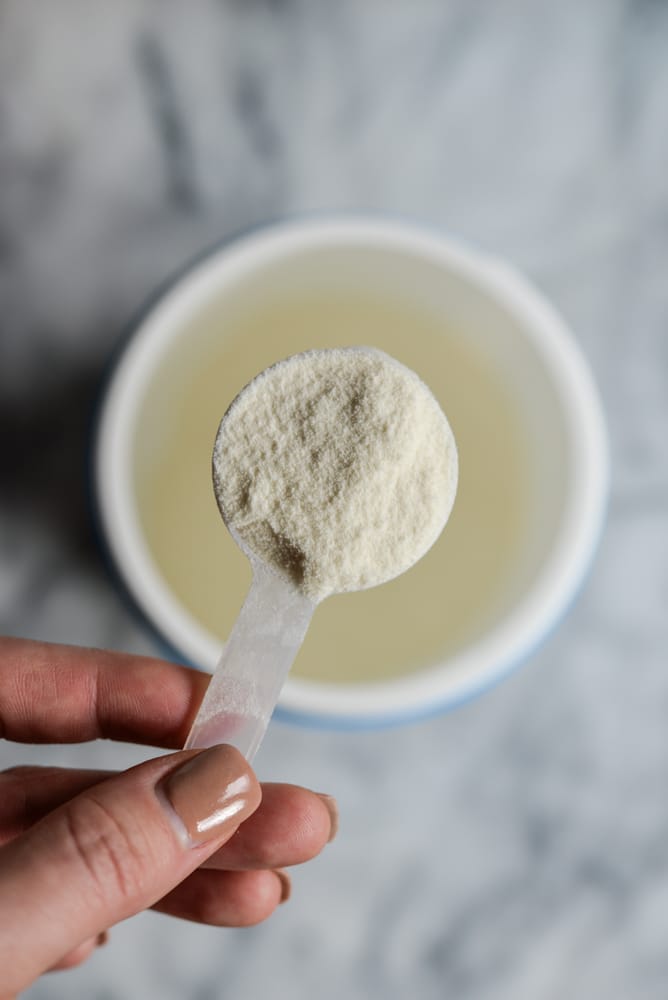
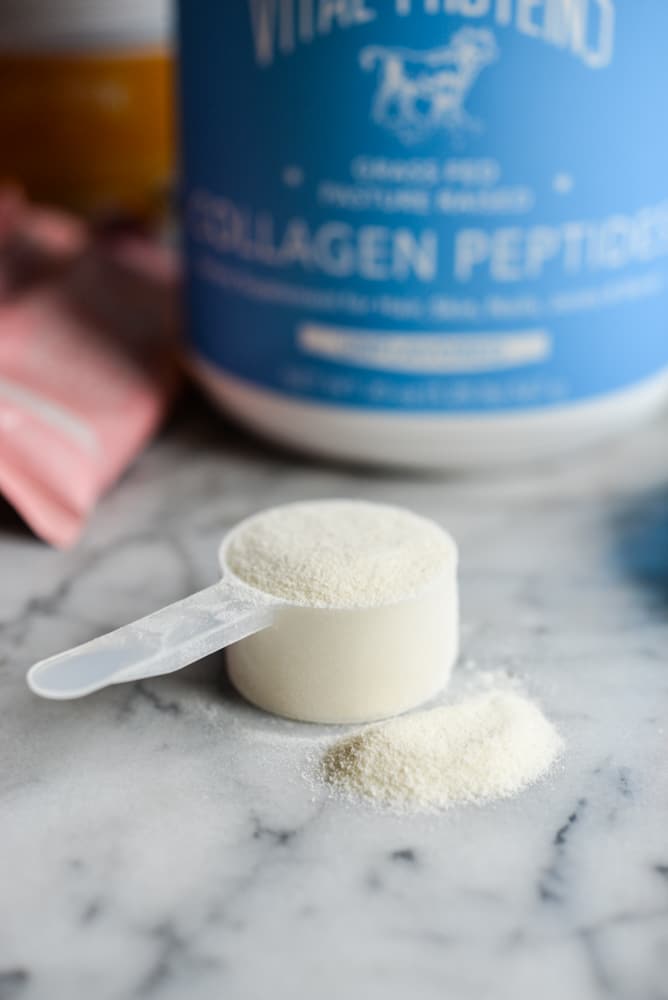
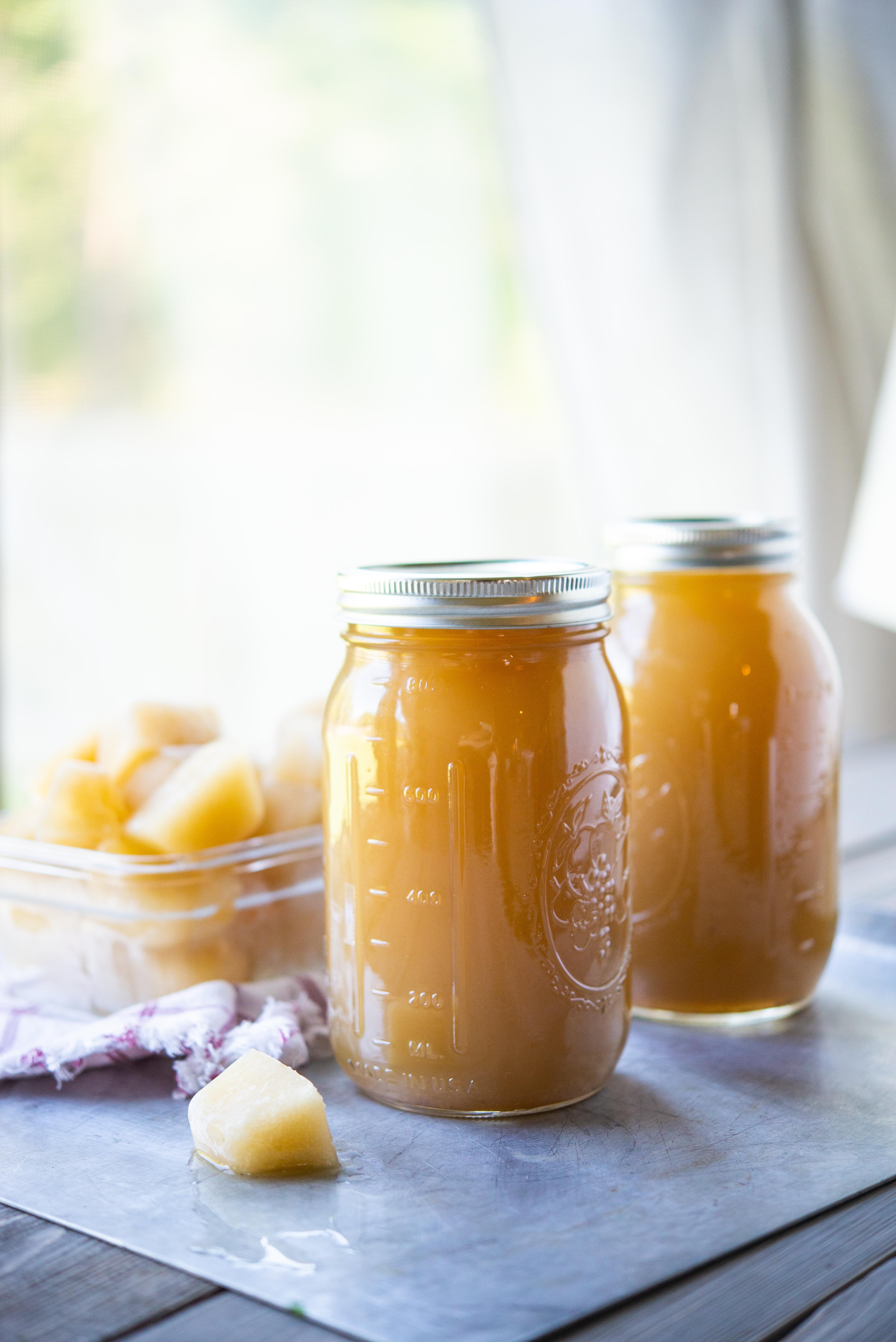
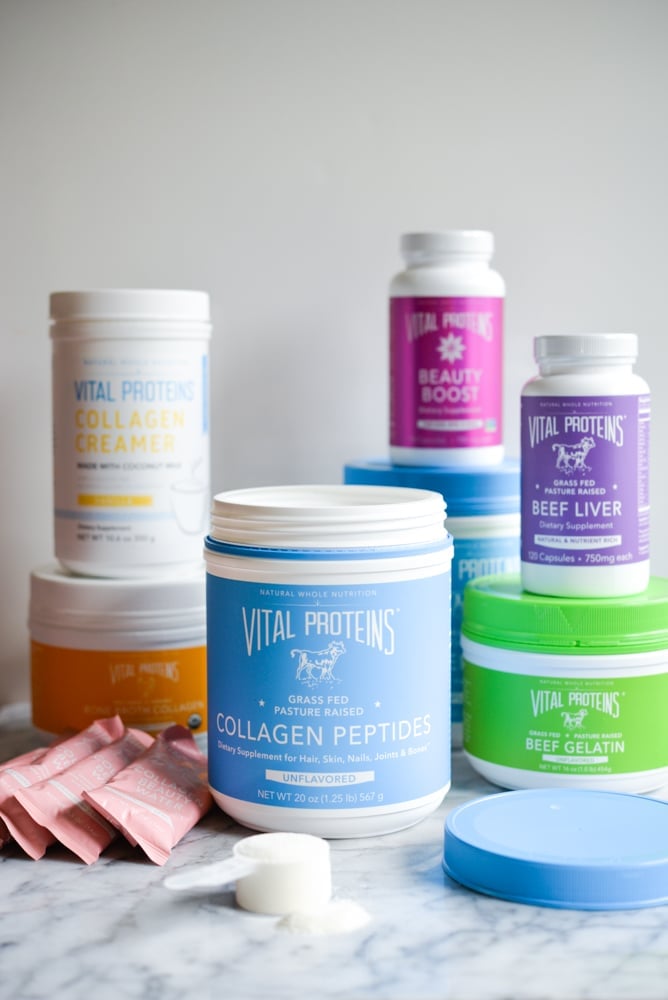
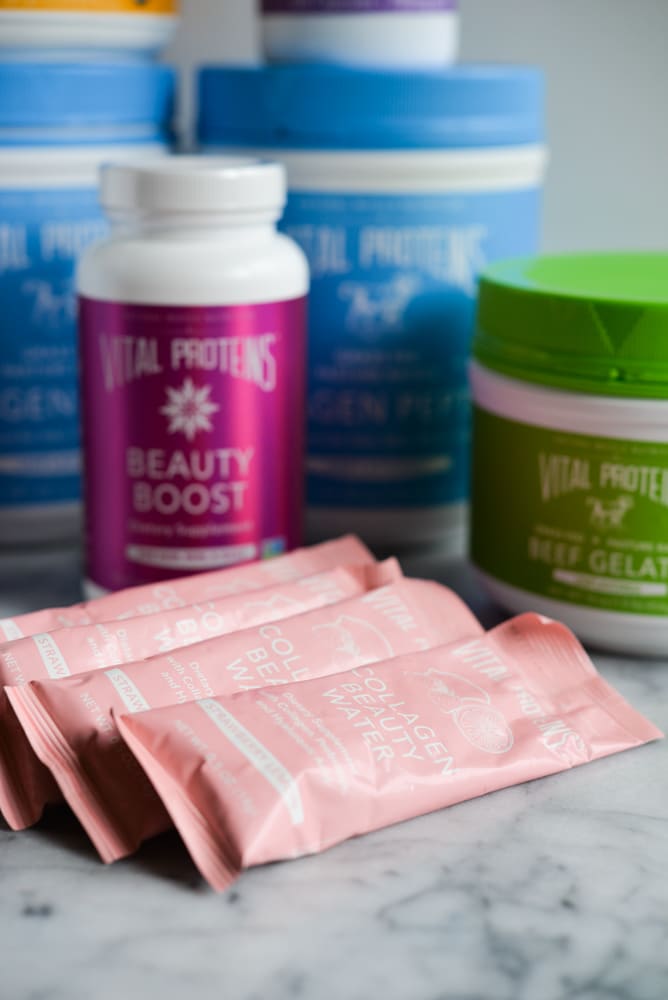
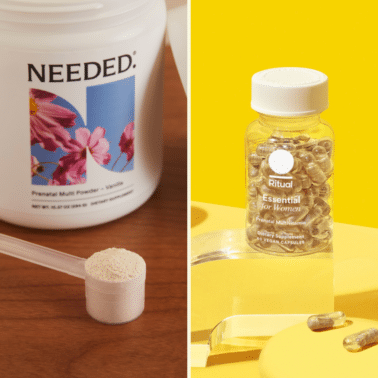











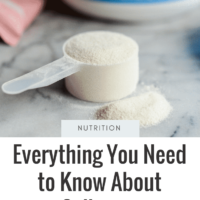
If finances are an issue and one does not drink coffee or tea, which is the best product when trying to mitigate the effects of arthritis?
Hi Ann, if finances are an issue you can get collagen from the foods listed in this article! If you’d still like to purchase a supplement, the collagen will dissolve in any liquid.
This post is great! Full of awesome information and broken down in such an easy to understand way. Thank you!
I am curious though, what other supplement(s) would you recommend for nail health? I currently use VP Collagen and I see a slight improvement in my hair, but my nails are still very brittle. I would appreciate any help.
Great article! Thanks for all the info. Currently sipping on my VP cold brew coffee 🙂
Love this post! Thanks for the info!
Great information! I’ve been wondering about this for a while so I’m glad someone actually took the time to break it down for all of us! You are the best!
What’s the difference between Vital Proteins and Great Lakes? Thank you.
Thanks for the great explanation! I just started using this product but did know truly all the great results!
I have been using vital proteins collagen for a while but stopped when I found out I was pregnant. I asked my healthcare provider and she asked that I bring it in so she could review all the ingredients. I recall that you continued using vital proteins throughout your pregnancy and I am assuming that you are still, while breastfeeding. I know you research all products you use whether it be hair, makeup, food etc. My question or assumption is that you personally feel comfortable with the products?
Hi Allyson! We always recommend running any supplements by your doctor, especially when it comes to pregnancy. With that in mind, Cassy personally used Vital Proteins throughout pregnancy and currently, you can read a little more here: https://fedandfit.com/pregnant-belly-care-41-week-update/
Hi! Is collagen safe during pregnancy? Did you use it? Thanks!
Do you find you have to blend to get the powder to dissolve or do you simply stir a scoop in? Thank you for the helpful information!
No need to blend! It dissolves easily with a spoon 🙂
Great post! Very well organized, written and explained!
I’ve been taking VP Collagen Peptides for a while now but it’s always helpful to get a refreshed on WHY I take it 🙂
Thank you for your thoughtful contribution!
I’m so glad you enjoyed it, Lisa!